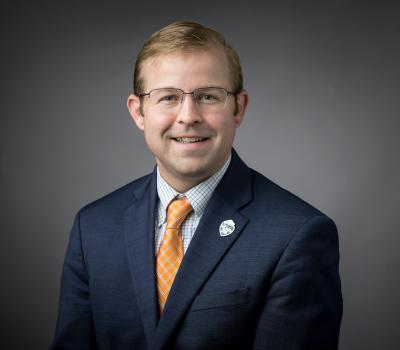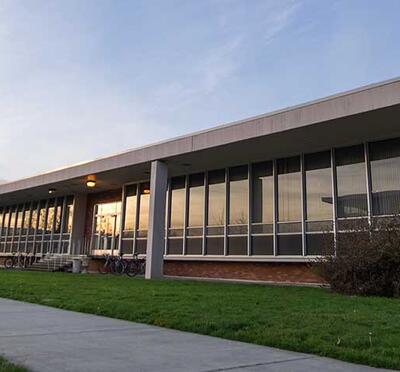Even as a teen in Los Angeles, Juwan Johnson knew he wanted to study nuclear fusion. But his path to Oregon State University started as a major detour in his life’s plan.
“I’ve always been in love with science,” said Johnson, now a senior majoring in nuclear engineering. “I had an obsession with the stars. In my room when I was growing up, my mom had the ceiling covered with the little plastic stars that would glow in the dark. She always told me the sky is the limit.”
A talented rugby player, Johnson was set to attend Dartmouth College on a full-ride scholarship to play for the Big Green and study physics. But after suffering a concussion in his final high school game — his third in the span of a year — he wouldn’t be allowed to play any sports for six months.
“I lost a lot of offers, all across the country at different schools, and it broke me,” he said. “But it got me here. It made me stronger in a different way.”
After considering his options, Johnson chose to attend Oregon State sight unseen, because of its nuclear engineering program — and because the university is one of only two in the nation with land, sea, space, and sun grant designations. Today, Johnson is an undergraduate researcher in the School of Nuclear Science and Engineering (NSE), a captain on the men’s rugby team, and a member of the Pi Kappa Phi fraternity.
Passion for Sport
Despite not being able to play rugby for a national powerhouse, Johnson is still passionate about the sport.
“It’s a beautiful culture,” he said. “If you play the game and you’re feeling it, nothing can replace it. On the field, we’re coming at our opponents. But after the game, we’re talking to the other team, shaking hands, laughing on the field. It’s about respect, as well as the game itself.”
Johnson’s goal is to grow the team and enthusiasm for the sport in general. He’s always scouting students at Dixon Recreation Center, talking to new students at orientation days, and, during breaks, helping coach high school teams at his Los Angeles alma mater. Johnson, who started playing as a high school junior and quickly became an All-American player, believes anyone can play the sport.
“Rugby is inclusive of people of all shapes and sizes,” he said. “As long as you put in effort, you can be a good player. Right now, our freshman class has five players who have never played before. Last season, we had 10 teammates that never played before. Four or five of those are starters and are leading playmakers on our team.”
Johnson’s and his teammates’ efforts are paying off, and for the first time since 2012, Beavers played in the Northwest Collegiate Rugby Conference championship game.

Johnson is helping develop instrumentation for the Helium-3 Negative Reactivity Insertion project, to be used in the Transient Reactor Test Facility at Idaho National Laboratory.
Passion for Research
As a member of the research group led by Wade Marcum, Henry W. and Janice J. Schuette Professor in Nuclear Science and Engineering and NSE associate school head, Johnson is helping to develop instrumentation for the Helium-3 Negative Reactivity Insertion project, to be used in the Transient Reactor Test Facility at Idaho National Laboratory.
The ultimate goal of the project is to design a new system that can cut short a power pulse to improve the safety of nuclear reactors, and to allow the study of new nuclear fuels under relevant accident conditions.
Current systems for controlling reactor power involve control rods, which are dropped into the reactor if power reaches a dangerous level, explains Guillaume Mignot, assistant professor, senior research, of nuclear science and engineering. This mechanically driven process takes some time, Mignot says, and in a nuclear accident, milliseconds matter.
The new system being developed at Oregon State uses a vacuum cylinder that sits in the reactor and, when conditions warrant, releases helium-3 to absorb neutrons and shut the reactor down.
“What’s important for this system,” Mignot said, “is to know the number of helium molecules that will be interacting with the neutrons. To do that, we need to measure the density of the helium.”
Johnson is using his physics background to help develop a technique that uses light waves to measure the density of helium. This will allow researchers to generate the precise pressure needed to release the optimal amount of helium into a reactor very quickly.
“We’re talking about a shutdown within 40 milliseconds,” Mignot said. “Right now, the systems we have take 90 milliseconds, and we want basically to reduce the time in half.”
It’s a complicated problem, but Johnson has jumped right in.
“It’s like, as a kid, getting thrown into the deep end and learning how to swim — and that’s actually how I learned how to swim,” Johnson said. “I’m used to getting thrown into the deep end, and I actually kind of like it. It makes you adapt and improvise and overcome. I will try to learn any way possible to figure it out.”
That’s one of the traits that led Marcum to hire Johnson as an undergraduate research assistant.
“His work ethic is absolutely top tier,” Marcum said. “More than anything, he has a strong technical ability. But really, he puts the time and effort in, and one of the things that tends to differentiate students at an undergraduate level more than anything, is how they confront adversity.”
Johnson says that work ethic was instilled in him by his parents.
“My dad said if you were going to do something, do it 100 percent,” Johnson said. “So whatever I did, I did it 100 miles an hour, no looking back, just full effort. I like to complete goals I have in mind, just get it done, and also help people along the way.”
Passion for People
Johnson tutors classmates when he can and has even advertised on bulletin boards around campus — offering his services at no charge.
“I hate to see people struggle,” Johnson said. “If I can help other people, maybe one day someone will help me.”
He’s also involved in philanthropic activities through his fraternity, Pi Kappa Phi. Its big fundraiser each year involves biking across the country, as well as biking virtual miles on stationary bikes. In his first year, Johnson contributed to the fraternity’s 100,000 virtual miles over three days to support The Arc of Benton County, a local organization that provides classes and activities for teens and adults with intellectual and developmental disabilities.
Johnson has already had two job offers, but he has accepted Marcum’s offer to continue his research and studies at Oregon State.
“I think he has the potential to be a fantastic graduate student,” Marcum said. “But the reality is he’d be successful at whatever he does.”




